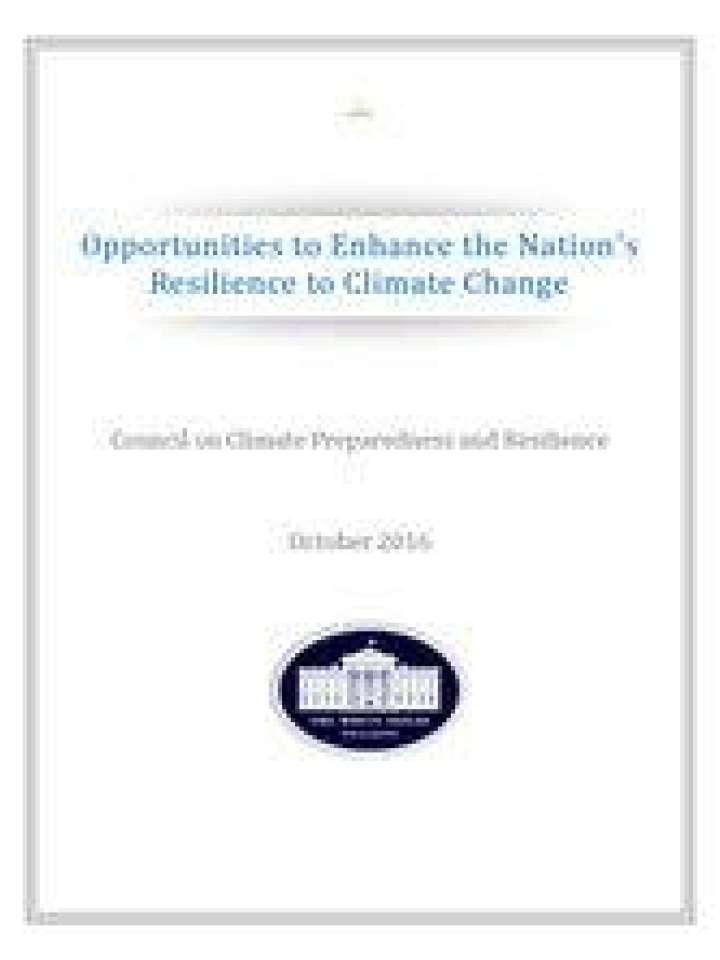USA: Opportunities to enhance the nation's resilience to climate change
This report discusses 17 opportunities for climate resilience, identified by the Resilience Council (United States of America) using the expertise and experience within Federal agencies and the perspectives of numerous stakeholders. These opportunities will guide sustained and coordinated action among Federal agencies and empower stakeholders to work with them on a shared resilience agenda.
The Resilience Council developed these opportunities using the following principles, which should continue to guide actions for climate resilience:
- Climate resilience should incorporate meaningful community engagement, fair and equitable outcomes, and targeted investments for communities that are often overlooked.
- Climate resilience should be coordinated among multiple stakeholders -including all levels of government, academic institutions, companies, and nonprofits- through partnerships, shared knowledge and resources, and coordinated strategies.
- Climate resilience should be mainstreamed into everyday decision making.
- Climate resilience should be a factor in fiscally responsible investments.
The 17 opportunities are grouped into three themes. They are complementary to one another and, collectively, will help build climate resilience throughout the country:
- Advancing and applying science-based information, technology, and tools to address climate risk:
- improve awareness and dissemination of climate information;
- enhance the usability of climate tools for decision-making;
- facilitate co-production of knowledge and tools.
- Integrating climate resilience into Federal agency missions, operations, and culture:
- strengthen resilience coordination across Federal agencies;
- strengthen Federal workforce capacity through leadership direction and training;
- expand incentives and requirements to increase the resilience of infrastructure and buildings.
- Supporting community efforts to enhance climate resilience:
- build capacity, meaningfully engage communities, and invest in local leaders;
- strengthen place-based approaches to climate resilience;
- integrate resilience into health and social-service delivery.
Explore further
